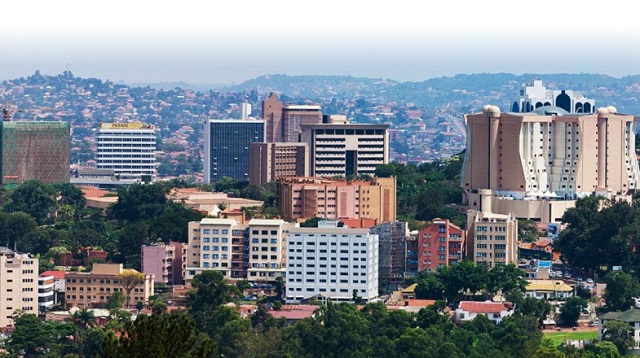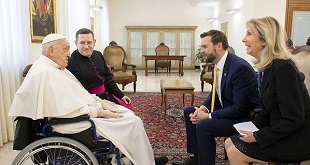
Why firing top leaders at KCCA is an excuse and not a solution to the problems of our capital city
THE LAST WORD | Andrew M. Mwenda | This week, President Yoweri Museveni fired the top leadership of Kampala Capital City Authority (KCCA). This was because a report by the Inspector General of Government accused them of negligence in performance of their duties regarding Kiteezi garbage dumping site.
Sources at State House said the president read the report immediately after receiving it. It threw him into an unusual rage. He there and then ordered the firing of the Executive Director, her deputy and the director of health services.
This is very unusual of Museveni. I suspect other reasons must have been at play. Rarely does he react so fast in firing public officials accused of gross mismanagement and/or corruption. Be that as it may, this decision should not blind us to the problems faced by KCCA which are beyond the management of the city.
Kampala could be the most underfunded (capital) city in the world. KCCA management first raised the issue of the risks and dangers of Kiteezi in 2013, declaring that the site is overused and needs to be decommissioned.
Since then, it has continually requested funds to fix the problem by finding a new dumping site in vain. As I have written in this column before, the biggest challenge of Kiteezi was not individual leaders at KCCA. Their culpability was minor. The fundamental problem is the attitude of the government of Uganda towards the city.
Kampala City is starved of funding. Last financial year, its entire development budget to handle infrastructure such as roads, drainage, traffic lights, street lighting, markets, schools and health facilities was a paltry Shs 40 billion. This was 0.1% of the total national budget and 1% of the budget allocated to roads for the rest of the country. Yet Kampala and its surrounding district of Wakiso and Mukono produce 65% of Uganda’s total economic output (GDP) and 75% of total tax revenues for the country.
Therefore, firing current management does not take away the problem of the city where managing garbage is just one small part. In fact, it gives the wrong impression to the public that the president has solved the problem.
Under investment in the city infrastructure is so chronic that Kampala looks like a Mogadishu or Bangui, cities that have been in civil war for the last 30 years. Coming from Kigali to Kampala is like traveling from a first world country to a civil war ridden fourth world country.
Many parts of the city like Industrial Area are today impassable. So terrible is the situation that roads, even in prime areas such as Nakasero, Kololo, Bugolobi, Naguru, Makindye etc. are in a dire state. Some of them, like in Industrial Area, don’t have mere potholes but huge craters that turn into mini lakes when it rains.
The drainage in the city is old and dilapidated, causing massive floods whenever it rains. To make the situation worse, the city authorities have allowed (or been forced to allow) investors and “investors” to reclaim wetlands and build in them, thus blocking water flow when it rains. This is the biggest cause of flooding.
In 1993, government of Uganda degazetted Namanve from a forest into an industrial park. A few years ago, the cabinet degazetted the swamp running from 5th Street, Industrial Area, then behind Bugolobi all the way to Luzira. This opened the place up for commercial, residential and industrial real estate development.
We have reached a point where no one cares or even thinks about the city and its future. Kampala must be the worst city to live in in the entire world. I am writing this article from Kigali where the city authorities are evicting people and factories from swamps and reclaiming them to return them to their natural state to build a green city.
Museveni can fire and hire leaders at KCCA and the situation in the city will move from bad to worse. The solution is for him personally and his government generally to rethink the role of the capital city in the development of Uganda.
Unless the president and his government view the city as the innovative hub of the country, as the place with the most productive citizens, as the heart of the rest of the economy, Kampala will continue to stink. In my personal discussions with him, I got the impression the president does not see fixing city infrastructure and making Kampala livable as a priority.
Whether this attitude is driven by genuine ideological and policy convictions or by political electoral calculations is not important. The objective outcome has been to stifle wider economic growth in Uganda by keeping his most productive citizens stuck in traffic jams for four hours every day.
This makes our economy lose millions of man hours per day. Because these skilled citizens arrive in office stressed by bad and filthy roads, their productivity is reduced further. Therefore, it is urgent that our government changes its policy attitude. Without this attitude, personnel changes at KCCA, however well intentioned, are meaningless.
I have also grown to recognize that the problems of Kampala should not be blamed on Museveni alone. The country has a minister of finance, a secretary to the treasury, a cabinet and parliament all of whom reside in the city.
I do not think they are powerless to influence budget allocations. This financial year, Uganda’s budget is Shs 72 trillion. Of this, Shs 20 trillion is rollover debt and interest payments. This means there is about Shs 52 trillion for government to spend. So government can afford to allocate KCCA Shs 500 billion every year for infrastructure development for the next five years.
Assuming cabinet led by Matia Kasaija (Minister of Finance), parliament by the speaker and the civil service by the PS/ST made a spirited case for this allocation, would Museveni refuse? I cannot read the minds of these people to appreciate the risks they see.
But I have worked with Museveni long enough and on very serious and sensitive issues to know that he is a very understanding person. Once given strong reasons backed by good statistical evidence about it, he is more inclined to listen and adjust than resist increasing the city budget.
There is a good chance that if Kasaija and his team at finance mobilized parliament and explained the economic value of investing in Kampala to the president, they can get the budget needed. So, the ball is in their court. Blaming Museveni for every failure in Uganda is convenient but not convincing.
****

amwenda@ugindependent.co.ug
 The Independent Uganda: You get the Truth we Pay the Price
The Independent Uganda: You get the Truth we Pay the Price




Andrew M9 wants to make an omelette without breaking an egg? M9 begins on a çlesr note by identifying the problem just like Tibuhaburwa did but then falls short of prescription.
Hate him or like him, in January 1986, Tibuhaburwa clinically diagnosed Africa’s but specifically Uganda’s problems as not the people but crooks who masquerade as leaders who don’t want to leave office after their expiry time.
Mr Tibuhaburwa is on record severally making decisions singlehandedly. A few examples will suffice here: in 1998 he singlehandedly decided to send updf to invade DR Congo then Zaire without parliamentary approval, in December 2007 he again singlehandedly sent updf to Somalia without going through parliament, inter alia. So which listening Tibuhaburwa are you talking about?
For as long as M7 sees any personal political benefits in making a decision, no amount of persuasion will stop him. Tell us when appointing KCCA directors who advices him on who are best suited for their respective jobs, or when allocating plots of land for so-called”investors”? Everything is done purely on quick political calculations!!
Tibuhaburwa therefore can never escape personal culpability in taking wrong decisions for the entire; your so-called ministers are there for their own survival. Have you ever asked yourself why former finance minister Maria Kiwanuka was quickly fired and replaced with current minister Matia Kasaija?